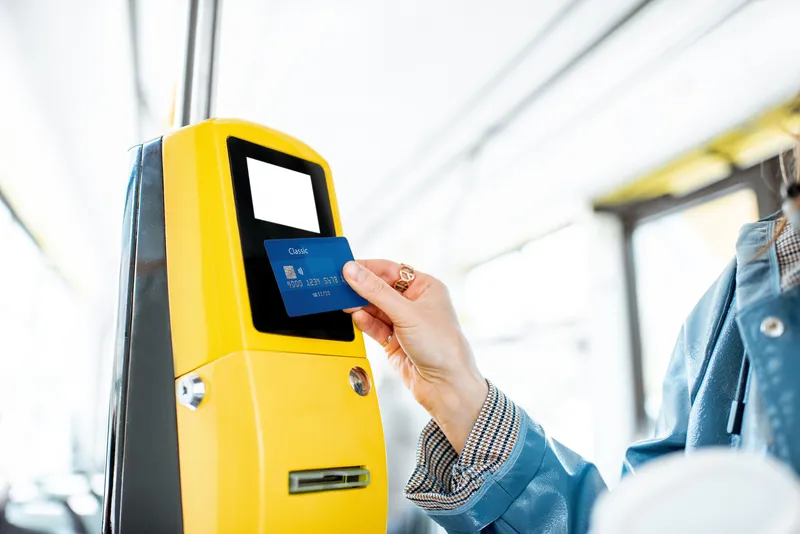
Feonix – Mobility Rising is among the organisations to be chosen by Michigan Department of Transportation (MDoT) for its Michigan Mobility Wallet Challenge awards.
Ecolane and the Regional Transit Authority of Southeast Michigan (RTA) will also take part in the scheme, which is designed to increase the interoperability of transit services and create greater access and equity to personal mobility for the US state's residents.
The idea is to simplifying paying for transit services by allowing riders or third-party stakeholders to load funds and/or connect bank accounts to a single platform and create a streamlined mechanism for fare payment and collection.
“Michigan is on the forefront of innovations in developing new technologies for public transit users," says acting state transportation director Brad Wieferich.
“These mobility wallet solutions will help provide easy and equitable access to various transportation providers across the state.”
Ecolane has been awarded $888,800 for this project, and company president Spiro Gjorgjievski says: "Ecolane's focus with the Mobility Wallet will be to ensure an integrated customer experience through our single Mobility as a Service platform X4MaaS, which unifies all mobility modes - including fixed route, ADA, paratransit, microtransit, scooters, bike rentals, and others - operated by an agency for trip planning, booking, and payment while empowering riders to achieve all of that through their mobile devices."
With funding of $1.5m, non-profit organisation Feonix - Mobility Rising's wallet will support Detroit, Grand Rapids, Jackson and surrounding areas.
Planned for launch on 7 August, recognising Purple Heart Day, it will initially be aimed at veterans. In January 2024, Feonix will use the mobility wallet to fill transportation gaps for families and individuals experiencing poverty, with development partners including SkedGo, MoCaFi, Metro Strategies, Menlo Innovations, Sundberg Ferar, University of Michigan, Michigan State University, Uber and Token Transit.
Feonix will be joined by West Michigan Veterans Coalition, Disability Advocates of Kent County, Mobile GR-City of Grand Rapids, HOPE Network, Kent County Essential Needs Task Force, Metro Detroit Council - Navy League of United States, The Welcome Home Organization, Michigan Works Southeast, Region 2 Area Agency on Aging, Western Washtenaw Area Value Express (WAVE), City of Hillsdale, Key Opportunities, Jackson County Military Coalition, The Rapid, Jackson Area Transportation Authority, Lenawee Public Transportation Authority, Ride Your Way, Care on Wheels, Superpedestrian, Lime and Boaz Bikes.
Feonix CEO Valerie Lefler, CEO of Feonix – Mobility Rising. “The benefits of mobility to public health as well as the broader economy cannot be understated.”
The Regional Transit Authority of Southeast Michigan was given $1m for its work in developing a regional master transit plan, coordinating regional transit projects, and distributing federal and state transit formula funds in the four-county region of Macomb, Oakland, Washtenaw, and Wayne counties.
The RTA in partnership with regional mobility providers, including the United Way for Southeastern Michigan, Detroit at Work, and Downtown Detroit Partnership developed a mobility wallet pilot and project development approach focused on the principles of universal basic mobility.
The pilot program will deliver an account-based mobility wallet with capability to access multiple transportation services, including DDoT, SMART, QLine, People Mover, MoGo and at least one scooter company. In addition, the pilot will seek to test methods for deploying fare-capping across multiple providers and subsidy programmes with a focus on equity and access for a largely cash-based transit rider population.
Ben Stupka, interim general manager of the RTA says: “This initiative will help transform the transit landscape in Southeast Michigan by using this innovative technology to simplify the transit payment process. We hope the knowledge gained during this pilot program can be used as a blueprint that can be replicated and introduced across the state. Creating a streamlined mechanism for fare payment is a significant step toward improving the transit experience for Michiganders."
The Michigan Mobility Wallet Challenge also includes the Office of Future Mobility and Electrification (OFME), Michigan Department of Labor and Economic Opportunity (LEO), and the Michigan Poverty Task Force (PTF).









